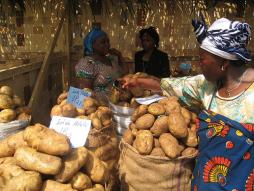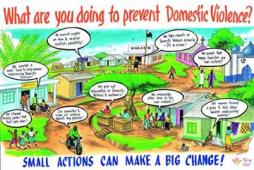violence
Posted by VivianOnano on Jun 30, 2011
The Role of Technology and Citizen Media in Promoting Transparency, Accountability and Civic Participation data sheet 1948 Views
Author:
David Sasaki; Renata Avila; Sopheap Chak; Jakub Górnicki; Rebekah Heacock; Victor Kaonga; Sylwia Presley; Manuella Maia Ribeiro; Namita Singh; Carrie Yang
Abstract:
This report is structured in three sections. The introduction examines the differing aspects between traditional watchdog journalism and online media that rely on raw data sources, often directly from government websites. The introduction also aims to contextualize the benefits of transparency, accountability and civic engagement from a grassroots, networked perspective.
The second section of the report consists of regional overviews authored by each of our eight researchers. These overviews document the history of the good governance movement in each region, the role of technology in promoting transparency and accountability, and summaries of the case studies they documented. The concluding section groups case studies thematically in order draw out trends, conclusions and recommendations that apply across a number of projects.
Posted by MelissaUlbricht on May 17, 2011
Targeting women with mobile phones and mobile-based projects can bring great benefits and opportunities, as we outlined in Part 1 of our series on women and mobiles. But, there is a “darker side” to this world, which includes changes in gender relations and power dynamic, a potential increase in violence, substitution of money or a change in expenditures, invasion of privacy, and increased control by a male partner.
Changes in Gender Relations and Power Dynamics
When the traditional social dynamic of a household is patriarchal, introducing a mobile phone into the hands of the woman can challenge the existing gender structure. Trina DasGupta, mWomen Programme Director for the GSMA Development Fund, writes in an e-mail to MobileActive.org, “threats to the status quo have sometimes been viewed negatively by community leaders and we have seen examples of this gender discrimination manifesting itself when women gain greater access to empowering tools, such as the Internet or mobile phones.”
Women themselves may not agree. The GRACE project study in Kenya, for example, finds that women do not perceive mobiles at tools for males. “Unlike our literature review that suggested that the mobile phone is culturally construed as a male tool, the women entrepreneurs did not perceive the phone as such. However, the study does indicate that usage of the phone is culturally construed, with an increase in responsibilities and empowerment for one or other profession socially construed as women’s work.”
A paper by Aramanzan Madanda looks at gender relations and ICT adoption in Uganda (the work will soon be published in book format) and finds that “existing gender structures have been dented and that patriarchy is stressed by adoption of the technologies especially mobile phones leading to transformation of gender relations to an extent.”
Posted by MelissaUlbricht on May 11, 2011
A village in India last year banned unmarried women from using mobile phones for fear they would arrange forbidden marriages. The village council suspected young men and women were secretly calling one another to arrange to elope. Meanwhile, unmarried men could use mobile phones under parental supervision.
As mobile penetration increases across the developing world, the entry of mobile phones in the hands of women causes reactions. In many cases, mobile phone ownership empowers women in myriad ways: economic gains, increased access to information, greater autonomy and social empowerment, and a greater sense of security and safety.
But, there is a darker side. Targeting women with mobile phones can cause changes in gender dynamics and family expenditures and may relate to increases in domestic violence, invasion of privacy, or control by a male partner.
Posted by MohiniBhavsar on Sep 16, 2010
Digitally Networked Technology in Kenya's 2007-2008 Post-Election Crisis data sheet 2033 Views
Author:
Joshua Goldstein and Juliana Rotich
Abstract:
Written largely through the lens of rich nations, scholars have developed theories about how digital technology affects democracy. However, primarily due to a paucity of evidence, these theories have excluded the experience of Sub-Saharan Africa, where meaningful access to digital tools is only beginning to emerge, but where the struggles between failed state and functioning democracy are profound. Using the lens of the 2007–2008 Kenyan presidential election crisis, this case study illustrates how digitally networked technologies, specifically mobile phones and the Internet, were a catalyst to both predatory behavior such as ethnic-based mob violence and to civic behavior such as citizen journalism and human rights campaigns.
The paper concludes with the notion that while digital tools can help promote transparency and keep perpetrators from facing impunity, they can also increase the ease of promoting hate speech and ethnic divisions.
Posted by LeighJaschke on Jul 13, 2009
The Kenyan 2007 Elections and Their Aftermath: The Role of Media and Communication data sheet 3448 Views
Author:
Abdi, Jamal; Deane, James
Abstract:
This 16-page policy briefing from the BBC World Trust Service analyses the role of the media in the Kenyan [January 2008] post-election violence. It is designed to enable an understanding of what has happened in Kenya in the belief that these issues have important policy implications and consequences in many countries. It situates its analysis within debates on democratic governance and poverty in order to contribute to a process of extracting lessons from the crisis. The briefing examines political polarity in the media and its function as a political tool. It discusses the inciting of violence and the role of the local language or vernacular media, as well as the media's role in calming the violence. "The role of the media in Kenya's violence has ...raised questions of whether media can be too free in fragile states such as Kenya....[The] briefing argues that the role of the local language media during the crisis was the product of a chaotic regulatory policy and the lack of training - especially of talk show hosts, whose programmes provided the platform for most of the hate speech....It argues that many local language radio [stations] played a role in calming tensions as well as inflaming them, and could be a powerful mechanism for reconciliation."
Posted by Esther Nasikye on Sep 26, 2008
Mobile phones are providing organisations and advocates with new ways to reach their communities. Now the Gender Based Violence Prevention Network in collaboration with Women of Uganda Network (WOUGNET) will use text messaging to create awareness about violence against women in Africa.
WOUGNET will be exhibiting in the SIMPlace at MobileActive08 to talk about Texting for Social Action, together with its vendor BulkSMS which has powered previous WOUGNET campaigns.

